Russian spy: Skripal asked Putin if he could return home
- Published
Skripal 'regretted being double agent'
Sergei Skripal wrote to President Putin asking to be allowed to return home, a friend of the former spy told the BBC.
Vladimir Timoshkov said Mr Skripal denied he was "a traitor" and asked for "complete forgiveness". The Kremlin denies receiving such a letter.
Mr Skripal was jailed in Russia in 2006, but was pardoned and freed four years later as part of a spy-swap - which saw him come to Britain.
He and his daughter Yulia remain in a critical condition in hospital.
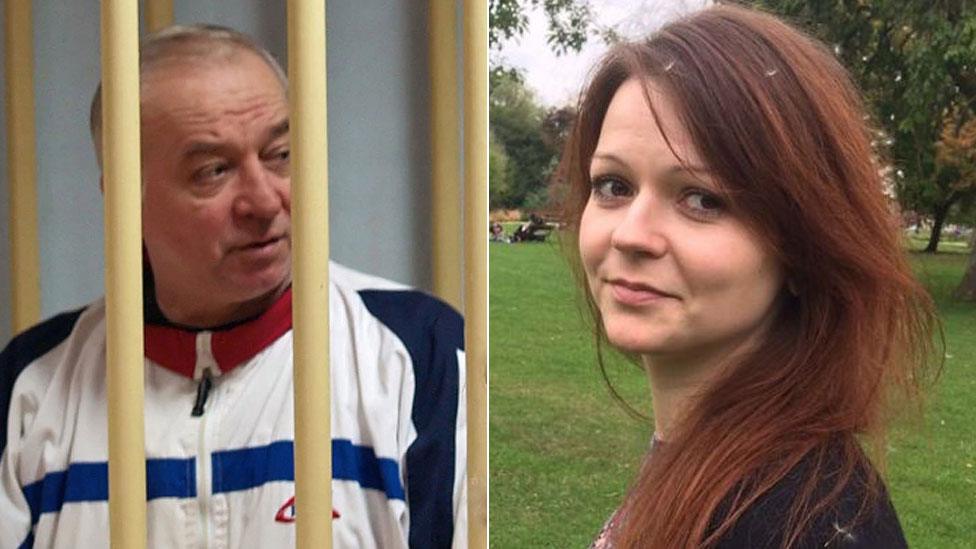
Sergei Skripal, 66, and his daughter Yulia, 33 were poisoned by a nerve agent called Novichok
Mr Skripal was "shunned" after being convicted of treason and his old classmates felt he had betrayed his country, said Mr Timoshkov - a school friend of Mr Skripal's.
He told the BBC he had reconnected with Mr Skripal through his daughter Yulia after the conviction and in 2012 spoke to his old friend on the telephone for half an hour.
According to Mr Timoshkov, Mr Skripal did not see himself as a "traitor" because the "oath he had sworn was to his socialist Motherland, the Soviet Union, not Russia".
He regretted being "a double agent" because his life had become "all messed up", his friend claimed.
He also asked to be allowed to return to Russia because he wanted to see his mother, brother and other relatives.
The Kremlin denies receiving a letter from Mr Skripal.
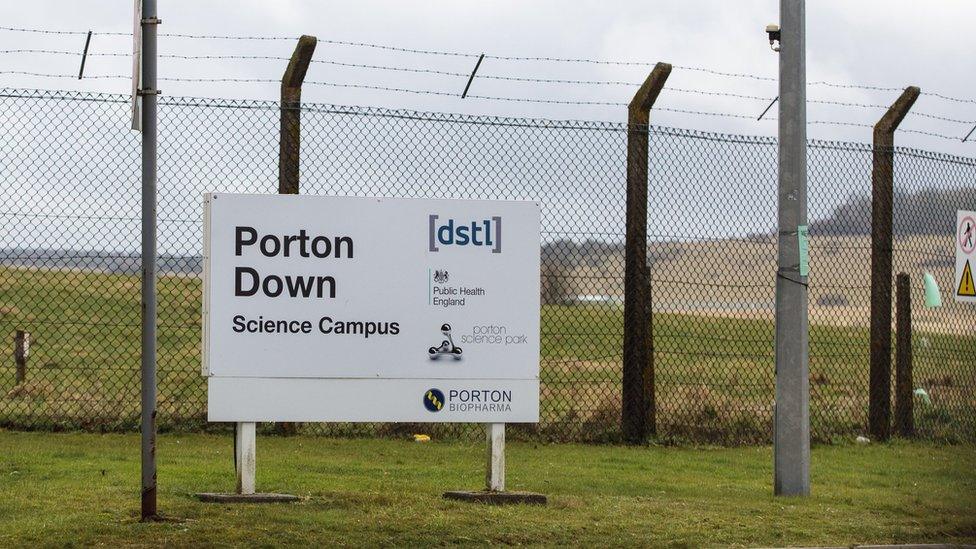
The UK's military research base, Porton Down, said a group of nerve agents known as Novichok were used in the poisoning of Mr Skripal and his daughter.
The site's chief executive told the BBC there is "no way" any nerve agent held at Porton Down could be linked to the poisoning of a Russian ex-spy and his daughter.
Gary Aitkenhead said suggestions by Russia that the proximity of the labs to the incident in Salisbury might be somehow suspicious were "frustrating".
He said the laboratory had the "highest levels" of controls and security.
In updated advice, external, Public Health England (PHE) said people who had been in the Mill pub and Zizzi restaurant in Salisbury visited by the Skripals wearing clothing that can only be dry cleaned should arrange to have their items collected by the council.
It said anyone in either venue between 13:30 GMT on Sunday 4 March and closure on Monday should arrange to have their clothes collected and they will be compensated.
PHE's earlier advice had been to wash possessions as a precaution and double bag in plastic clothes that needed dry cleaning until further notice.
EU coordinated action
Meanwhile, the 23 British diplomats ordered out of Russia in a tit-for-tat response to the UK's expulsion of 23 of its diplomats have arrived at RAF Brize Norton, the Foreign Office said.
It comes as EU leaders promised further, coordinated action against Russia in response to the attack, endorsing a warning from Prime Minister Theresa May that the poisoning represented a challenge to shared European values.
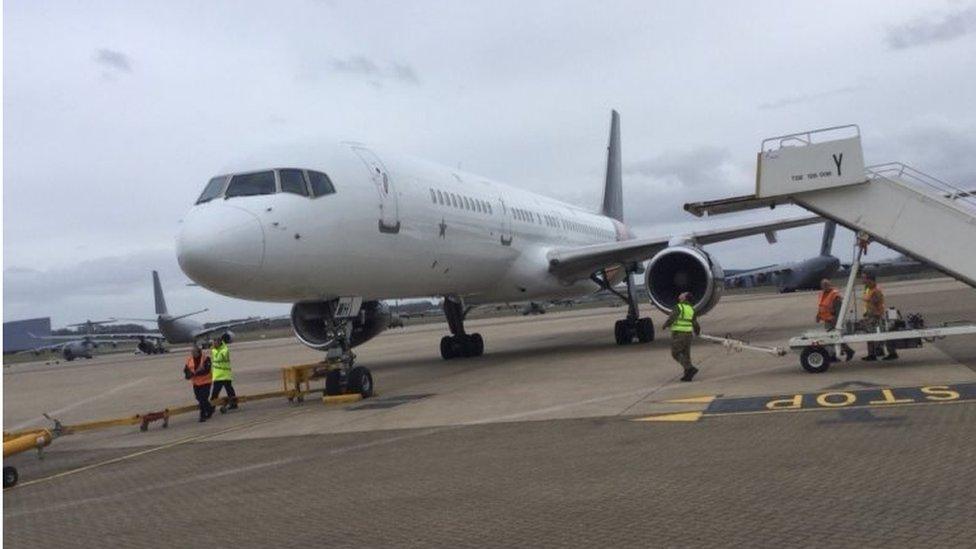
A charter flight from Moscow lands at RAF Brize Norton carrying the British diplomats and their families expelled from Moscow over the Salisbury nerve agent attack.
The EU has recalled its ambassador to Russia, German Markus Ederer, "for consultations" after saying on Thursday it was "highly likely" Russia was behind the attack.
Moscow, which denies responsibility for the attack, has accused the European Union of following an "anti-Russian campaign launched by London".
The war of words between the UK and Russia
President Putin has called for the Russian people to unite behind him during what he called a "challenging time".
The bench the Skripals were sitting on when they were found unconscious in Salisbury on 4 March has been removed by a team in protective suits, as the investigation continues.
A policeman left critically ill after responding to the incident was discharged from hospital on Thursday.
The Russian embassy in London wrote a public letter to Det Sgt Nick Bailey, saying it was "relieved" at his recovery and hoped the Skripals would "get well soon too".
Allow X content?
This article contains content provided by X. We ask for your permission before anything is loaded, as they may be using cookies and other technologies. You may want to read X’s cookie policy, external and privacy policy, external before accepting. To view this content choose ‘accept and continue’.
- Published8 October 2018
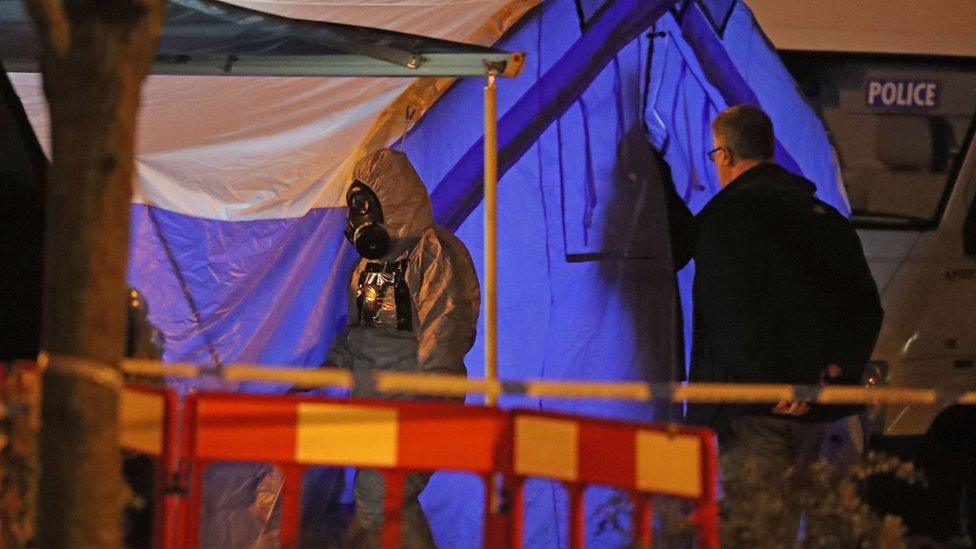
- Published23 March 2018
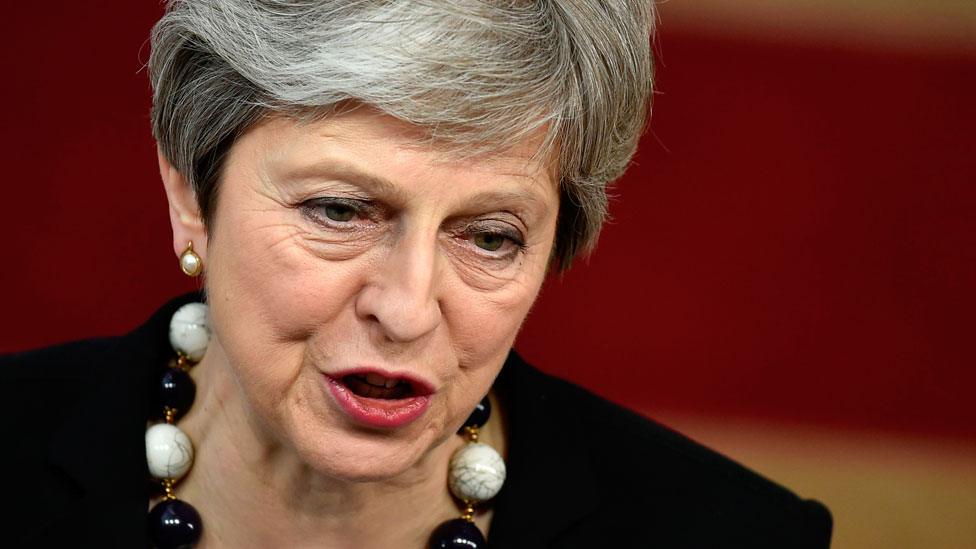
- Published20 March 2018
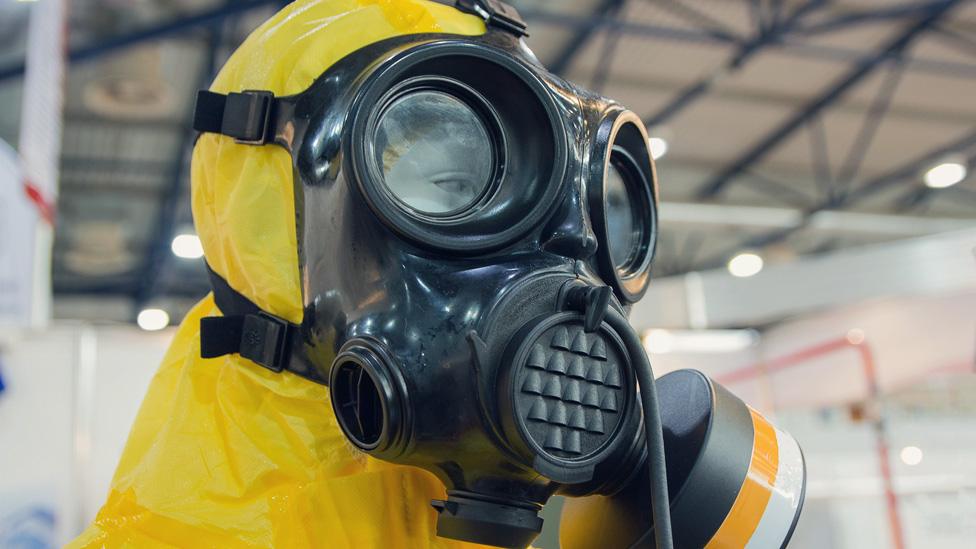
- Published2 September 2020
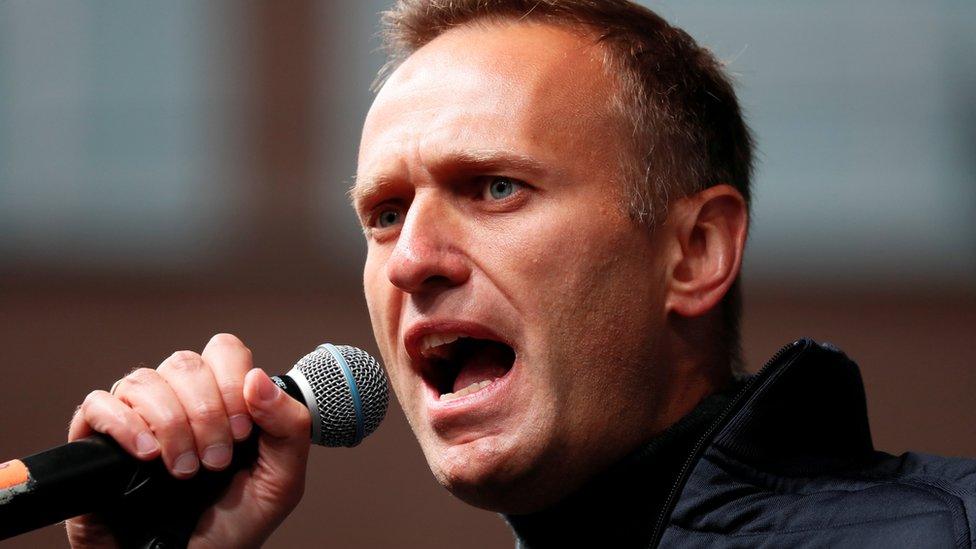
- Published23 March 2018